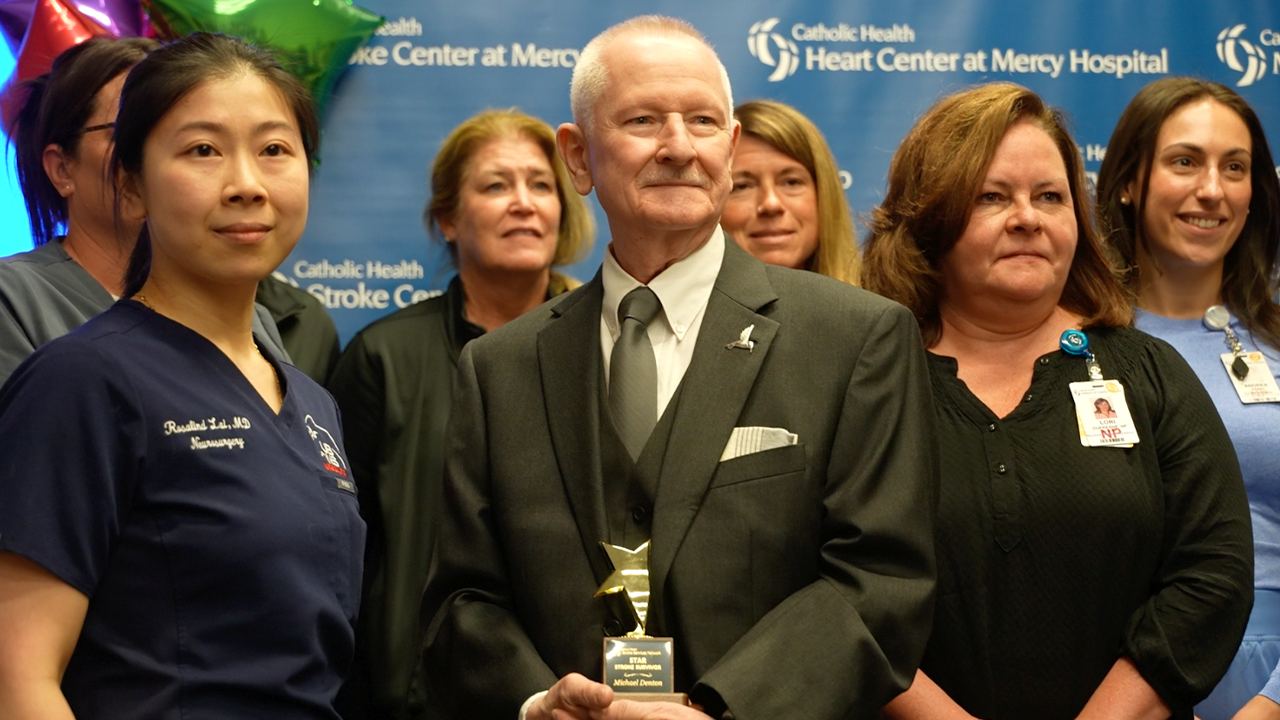Stroke survivor Michael Denton said he got really lucky as he reflected on his journey one year after suffering a severe stroke.
On Thursday, Denton reunited with the EMS team and the medical staff at Mercy Hospital, thanking them for their fast response and especially his son’s quick thinking for saving his life.

“He came and he said, ‘Jeeze, your face is sagging and you can't speak, you have a stroke!’” Denton said. “I didn’t know what he was talking about because, to tell you the truth, I was out of it."
Denton’s stroke was serious, but his son’s immediate recognition of the symptoms and the expert care he received at Mercy made all the difference.
“Next thing I knew, I felt fine," Denton said. "It was like, what happened?”
Thursday’s patient reunion came as Mercy Hospital marked National Stroke Awareness Month and celebrated a major milestone, receiving the Stroke Gold Plus Quality Achievement Award from the American Heart Association and American Stroke Association, for the 13th year in a row.
The award is the highest national recognition for stroke care excellence.

“It has been a wonderful celebration for everyone involved and a true collaboration,” Doctor Rosalind Lai, a neurosurgeon at Mercy Hospital, said while highlighting the importance of acting fast when a stroke occurs.

“Michael is unique in that he came in with a stroke called a large vessel occlusion,” Dr. Lai said. “He had a large clot in one of his major blood vessels on the left side of his brain. That side controls the right side of the body, so when he was at home, he suddenly became weak.”
Lai said that time is brain, the sooner a patient receives treatment, the better their chances of recovery.
“The longer we wait, the more the brain dies and the more permanent it becomes,” she said. “People who come in many, many hours later would not have the recovery Michael did.”
As part of the awareness campaign, Doctor Lai encouraged the public to remember the acronym “BE FAST” when spotting stroke symptoms:
- Balance issues
- Eye changes or vision loss
- Face drooping
- Arm weakness
- Speech difficulty
- Time to call 911
“When you have a stroke, you don’t even realize it,” Denton said. “But the people who see those conditions should recognize them and take immediate action.”
Denton said Thursday's reunion serves as a powerful reminder that knowing the signs of stroke and acting quickly can save lives.




